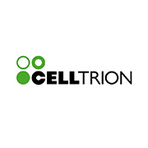YUFLYMA®: A Game Changer in the Biosimilar Landscape
May 26, 2025, 10:33 am

Location: United States, Kansas, Winfield
Employees: 1001-5000
Founded date: 2011
Total raised: $820K
In the ever-evolving world of pharmaceuticals, the recent announcement from Celltrion, Inc. has sent ripples through the biosimilar market. The U.S. Food and Drug Administration (FDA) has granted an expanded interchangeable designation for YUFLYMA® (adalimumab-aaty). This designation now includes prefilled syringes and autoinjectors in various strengths. YUFLYMA is now fully interchangeable with Humira® (adalimumab), the reference product, across all marketed dosage forms. This is a significant milestone, akin to a key unlocking a door to broader patient access and affordability.
Celltrion's YUFLYMA is a high-concentration, citrate-free formulation of adalimumab. It is designed to treat a range of inflammatory conditions, including rheumatoid arthritis, psoriatic arthritis, and Crohn's disease. The FDA's decision comes at a crucial time, as healthcare costs continue to rise. The interchangeable designation not only enhances the drug's marketability but also aligns with federal initiatives aimed at reducing drug prices.
The journey of YUFLYMA began in July 2023 when it first entered the U.S. market. Since then, it has been available in various forms: 20mg, 40mg, and 80mg solutions for injection in prefilled syringes, as well as 40mg and 80mg in autoinjectors. The recent approval expands its reach, allowing patients more options for treatment. This flexibility is vital, as it caters to different patient needs and preferences.
The FDA's decision is backed by a Phase III interchangeability study. This study demonstrated that YUFLYMA and the reference adalimumab produced similar outcomes in terms of pharmacokinetics, efficacy, safety, and immunogenicity. Such findings are crucial, as they provide a solid foundation for healthcare providers to confidently prescribe YUFLYMA as an alternative to Humira.
The interchangeable designation is not just a feather in Celltrion's cap; it represents a commitment to patient-centric care. The company has pledged to keep drug costs affordable while maintaining high-quality treatment options. In a world where healthcare expenses can feel like a heavy anchor, YUFLYMA offers a lifeline. The wholesale acquisition cost (WAC) of YUFLYMA has been reduced to $948 per syringe, reflecting Celltrion's dedication to improving patient access.
However, the path to approval was not without challenges. The biosimilar market is a battleground, with numerous players vying for a share. Yet, Celltrion has managed to carve out a niche for itself. The company's strategy includes offering both branded and unbranded versions of YUFLYMA, catering to diverse patient needs. This dual approach is akin to casting a wide net, ensuring that no patient is left behind.
Safety remains a paramount concern in the world of biologics. YUFLYMA carries important safety information, including the risk of serious infections. Patients using adalimumab-aaty may be at an increased risk for infections that could lead to hospitalization or even death. This underscores the importance of monitoring patients closely, especially those with underlying health conditions or those taking immunosuppressants.
The FDA has also highlighted the potential for malignancies associated with TNF blockers like YUFLYMA. Reports of lymphoma and other cancers have been noted, particularly in children and adolescents. This is a stark reminder that while biosimilars offer new hope, they also come with risks that must be carefully weighed.
As YUFLYMA continues to gain traction, it is essential for healthcare providers to stay informed. The landscape of biosimilars is rapidly changing, and understanding the nuances of each product is crucial for optimal patient care. YUFLYMA's interchangeable status with Humira could reshape treatment protocols, offering patients more choices and potentially lower costs.
The biosimilar market is not just about competition; it's about collaboration and innovation. Companies like Celltrion are paving the way for a future where patients have access to affordable, high-quality treatments. YUFLYMA stands as a testament to this vision, embodying the spirit of progress in the pharmaceutical industry.
In conclusion, YUFLYMA's expanded interchangeable designation is a significant step forward in the biosimilar landscape. It opens doors for patients seeking effective treatment options while addressing the pressing issue of drug affordability. As the healthcare industry continues to evolve, YUFLYMA represents a beacon of hope for those battling chronic inflammatory conditions. The journey is just beginning, and the impact of this biosimilar will be felt for years to come.
Celltrion's YUFLYMA is a high-concentration, citrate-free formulation of adalimumab. It is designed to treat a range of inflammatory conditions, including rheumatoid arthritis, psoriatic arthritis, and Crohn's disease. The FDA's decision comes at a crucial time, as healthcare costs continue to rise. The interchangeable designation not only enhances the drug's marketability but also aligns with federal initiatives aimed at reducing drug prices.
The journey of YUFLYMA began in July 2023 when it first entered the U.S. market. Since then, it has been available in various forms: 20mg, 40mg, and 80mg solutions for injection in prefilled syringes, as well as 40mg and 80mg in autoinjectors. The recent approval expands its reach, allowing patients more options for treatment. This flexibility is vital, as it caters to different patient needs and preferences.
The FDA's decision is backed by a Phase III interchangeability study. This study demonstrated that YUFLYMA and the reference adalimumab produced similar outcomes in terms of pharmacokinetics, efficacy, safety, and immunogenicity. Such findings are crucial, as they provide a solid foundation for healthcare providers to confidently prescribe YUFLYMA as an alternative to Humira.
The interchangeable designation is not just a feather in Celltrion's cap; it represents a commitment to patient-centric care. The company has pledged to keep drug costs affordable while maintaining high-quality treatment options. In a world where healthcare expenses can feel like a heavy anchor, YUFLYMA offers a lifeline. The wholesale acquisition cost (WAC) of YUFLYMA has been reduced to $948 per syringe, reflecting Celltrion's dedication to improving patient access.
However, the path to approval was not without challenges. The biosimilar market is a battleground, with numerous players vying for a share. Yet, Celltrion has managed to carve out a niche for itself. The company's strategy includes offering both branded and unbranded versions of YUFLYMA, catering to diverse patient needs. This dual approach is akin to casting a wide net, ensuring that no patient is left behind.
Safety remains a paramount concern in the world of biologics. YUFLYMA carries important safety information, including the risk of serious infections. Patients using adalimumab-aaty may be at an increased risk for infections that could lead to hospitalization or even death. This underscores the importance of monitoring patients closely, especially those with underlying health conditions or those taking immunosuppressants.
The FDA has also highlighted the potential for malignancies associated with TNF blockers like YUFLYMA. Reports of lymphoma and other cancers have been noted, particularly in children and adolescents. This is a stark reminder that while biosimilars offer new hope, they also come with risks that must be carefully weighed.
As YUFLYMA continues to gain traction, it is essential for healthcare providers to stay informed. The landscape of biosimilars is rapidly changing, and understanding the nuances of each product is crucial for optimal patient care. YUFLYMA's interchangeable status with Humira could reshape treatment protocols, offering patients more choices and potentially lower costs.
The biosimilar market is not just about competition; it's about collaboration and innovation. Companies like Celltrion are paving the way for a future where patients have access to affordable, high-quality treatments. YUFLYMA stands as a testament to this vision, embodying the spirit of progress in the pharmaceutical industry.
In conclusion, YUFLYMA's expanded interchangeable designation is a significant step forward in the biosimilar landscape. It opens doors for patients seeking effective treatment options while addressing the pressing issue of drug affordability. As the healthcare industry continues to evolve, YUFLYMA represents a beacon of hope for those battling chronic inflammatory conditions. The journey is just beginning, and the impact of this biosimilar will be felt for years to come.

